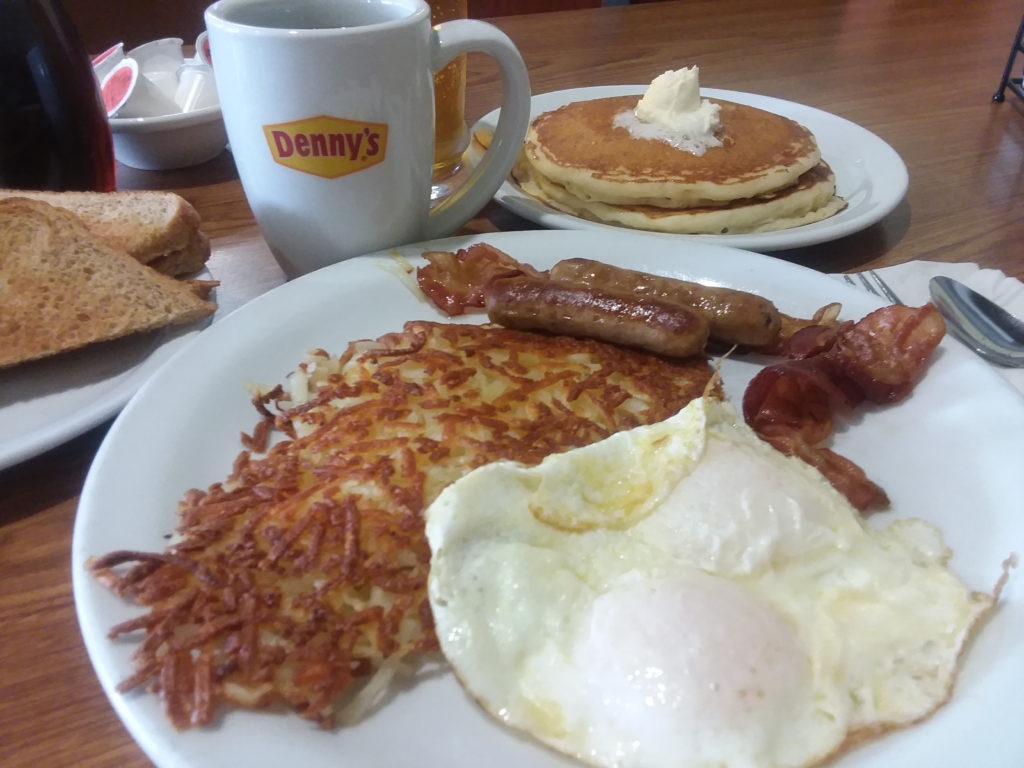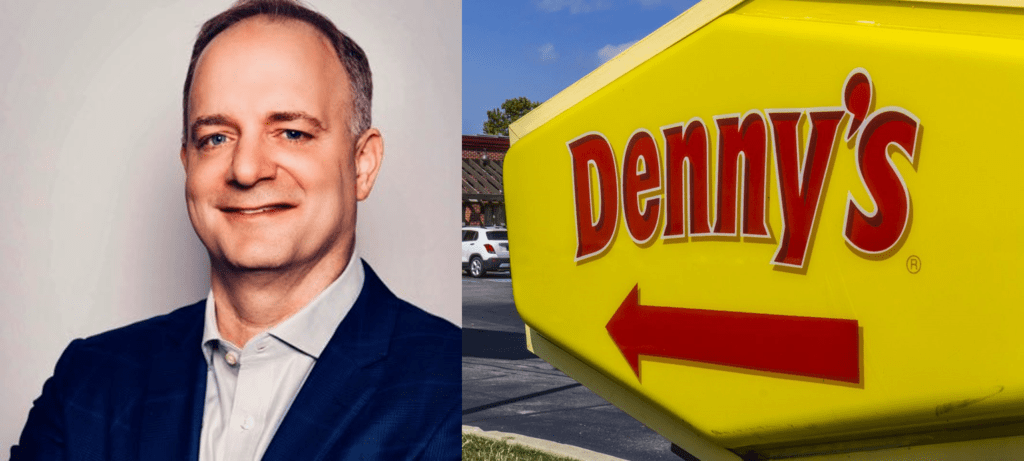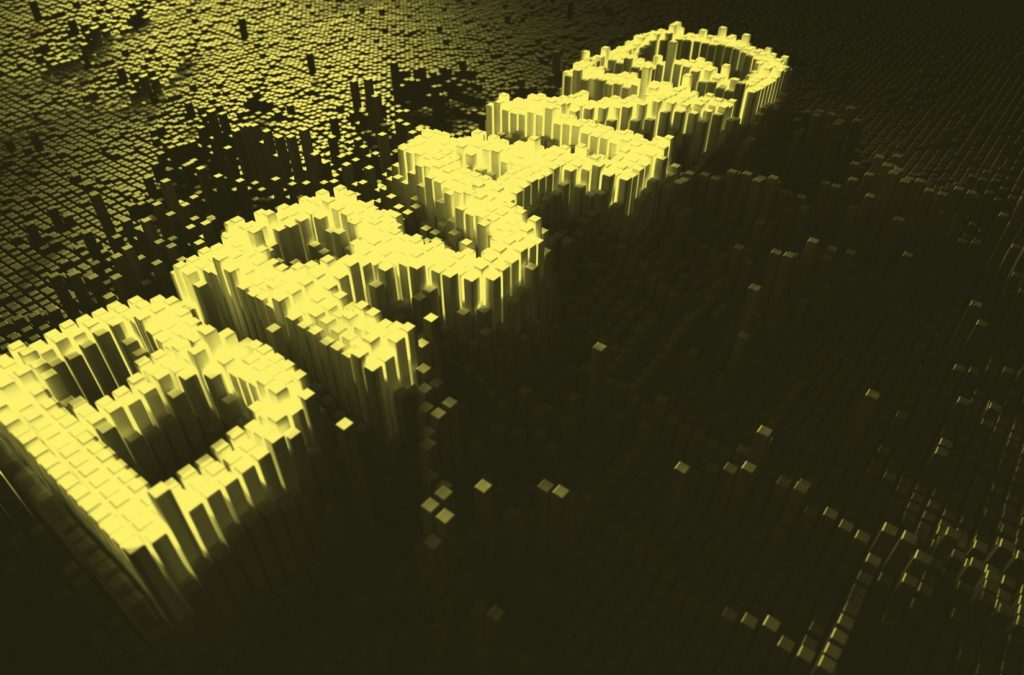
Way back in those college days, food quantity often trumped food quality. Actually, the price of the food was usually the key issue. That’s where Denny’s came in handy. Their Grand Slam Breakfast was made for college students (especially with the munchies). For $1.99, it was the best deal in Ann Arbor.
All these years later, Denny’s is still around. Born in 1953 and originally known as Denny’s Donuts, the chain now has north of 1,700 locations in the U.S., and in several countries around the globe.
Chances are, you’re familiar with the brand. And it’s likely you’ve dined there before. Many Denny’s restaurants are well-located near freeways and well-traveled areas, while most are open 24 hours a day and on holidays. And you can order anything off the menu at any time.
So, quick – what’s Denny’s position – its slogan?
In case you forgot – or you’ve been overwhelmed by the marketing assaults from other eateries – Denny’s now brands itself as…
America’s Diner
It makes strategic sense. Denny’s is trying to differentiate itself from those diners of old – the Howard Johnson’s or the aging Waffle House franchise, mostly located in the South.
And between all those fast food chains and casual dining restaurants, and even in-between spots like Panera and Chipotle, owning “a hill” is an important brand position for a competitive industry like the restaurant biz.
That was, until COVID hit. Faced with lockdowns and outright closures, every chain and local eatery has been existentially challenged since the outbreak began nine long months ago.
Is it about owning a hill or is it about occupying a position of purpose in a consumer’s mind?
Radio broadcasters have long been chasing brand positions. Back in the 1970’s when Bill Moyes formed the seminal Research Group, positioning became a major priority for radio operators.
It was all about owning the hill in the market. Radio pros researched these market opportunities, decided on their strategic role (leader or flanker), and then programmed and marketed to win it.
these market opportunities, decided on their strategic role (leader or flanker), and then programmed and marketed to win it.
Since then, it’s been a battle to own those hills – the #1 Country station, the only All-News station, THE Classic Rock station, the Music Discovery leader, and yes, the Christmas Music station.
All hills. We know how to identify them, program them, market them, and win them.
All good, until the pandemic rolled in like a tidal wave, changing marketing forever – or just for now.
It’s hard to say because there’s so much we don’t know about how we will end up, post-pandemic. And when that day will come.
But we do know this – when our lives and culture are threatened, the idea of brand purpose trumps brand position.
For Denny’s, COVID meant a return to basics. And for inspiration, they turned to their founder, Harold Butler. His famous quote to explain why he started Denny’s – “I love to feed people” – was the mantra that originally got his LA-based business off the ground.
According to the company’s SVP/CMO, John Dillon, that’s the foundation Denny’s returned to when the global pandemic threatened their business.
 He explained to The Drum’s Kenneth Hein, there’s a “through line” between brand positioning – and brand purpose:
He explained to The Drum’s Kenneth Hein, there’s a “through line” between brand positioning – and brand purpose:
“Throughout the storm, make sure you’re anchoring all you do in your brand purpose. I‘m a big believer in brand purpose. There‘s a very magical, sweet spot between brand purpose and brand positioning that should be your north star.”
For Denny’s, that brand purpose was the simplicity and basics of feeding people. In order to pull that off, they quickly had to pivot to curbside service and free delivery, but also the creation of family packs that acknowledged how so many families were eating meals together again.
Denny’s brand purpose – “feeding people” – extended to veterans, donating thousands of those Grand Slam meals as part of their “Hero’s Tour” initiative.
During COVID, it became important for Denny’s to circle the wagons around that brand purpose. It was as meaningful to Denny’s staffers as it was to its customers.
Here’s Dillon again:
“Brand purpose is important for consumers. But it‘s just as important, if not even more so, for internal reasons to really make sure your team members know what you stand for as a brand, and its importance as you‘re facing stresses and challenges with what’s going on in the world. Making sure you‘re anchored in that brand purpose and brand positioning. It’s time to double down on it more than ever.”
Yes, being Dayton’s #1 Country Station made sense when the mission was about becoming the market leader for that format hill in that Ohio metro. But thanks in no small part to audio  streaming services, satellite radio, and even platforms like Music Choice available on cable TV systems, who plays the most Luke Bryan becomes something of a moot point.
streaming services, satellite radio, and even platforms like Music Choice available on cable TV systems, who plays the most Luke Bryan becomes something of a moot point.
And during a unique challenge for brands – like the one we’re all fighting through now – that brand purpose: what a station does, what it stands for, and how it makes us feel – moves to the top of the pyramid.
A look through the radio trades, especially at this time of year, reveals one community fundraiser and initiative after another taking place among stations in all-size markets.
Pandemic or not, radio broadcasters have found a way to connect with their local roots, raising millions of dollars for good causes in the process. It’s laudable, and it underscores the fact that most stations are much more than a playlist or a jukebox.
Personalities have never been more important to the medium – whether it is syndicated shows or popular local stars. In spite of the painful Reductions In Force that continue rolling through several radio companies, the people aspect of local radio contributes to that brand purpose.
A look at any COVID map reminds us that members of every community are hurting in profound ways. Smart brands understand their purpose in the middle of the storm, whether they’re Denny’s or a savvy local radio station.
Radio’s “job to do” isn’t etched in stone. It is as organic and even as unpredictable as the year that is now drawing to a thankful close. Assessing the mood and tenor of the audience at any given moment in time – what they need and how we can deliver it to them – separates the stations that are built to last versus those that will be searching for a new format in the new year.
 Escape, mood elevation, “the feels,” local news coverage, companionship, nostalgia. Those are the attributes – your brand purpose – that truly matter during a pandemic.
Escape, mood elevation, “the feels,” local news coverage, companionship, nostalgia. Those are the attributes – your brand purpose – that truly matter during a pandemic.
Brand positioning is valuable.
Brand purpose is priceless. It’s your “north star.”
Yes, everyone in the station knows your positioning statement, the one you methodically repeat several times an hour.
But can they find your station’s “north star” – your brand’s purpose?
Can you?
- Media And Technology In 2025: Believe It Or Not! - April 18, 2025
- In Radio, You Just Never Know - April 17, 2025
- The Secret To Making A Great Podcast (And Great Radio) - April 16, 2025




One of my former bosses used to say, “nobody really sets out to go to Denny’s, they just end up there.” Making the point that they were easy access and there was no confusion as to what they served, and when they served it.
Exactly, Bob. You knew what you were going to get. Marketing in this environment today is a little trickier. Thanks for the comment.
Simon Sinek says “‘People don’t buy what you do; they buy why you do it. And what you do simply proves what you believe.”
When I started in radio, it was all about creating the best, most compelling radio listening experience. Making money was a byproduct of that passion.
I think Denny’s owner’s original mantra “I love to feed people” was much more compelling than “America’s Diner.”
Denny’s, like the radio industry, moved from telling people WHY they do what they do, to telling people WHAT they do.
Steve Jobs put it this way: “If you keep your eye on the profit, you’re going to skimp on the product. But if you focus on making really great products, then the profits will follow.”
We’re singing out of the same hymnal, Dick. COVID is a moment where radio has a chance to re-center itself around emotional need, rather than 10-in-a-row with less talk. Thanks for the robust comment.
Fred,
Brilliant as always. You frame the issue perfectly at the beginning and end asking; what’s your North Star?
Clearly, the answer isn’t the same for local programming staffs and in the C-Suites at corporate. The programming people are saying amen brother, at least the ones left.
In C-Suites, maintaining cash flow, making the month, and preparing for the quarterly call is the North Star. People don’t matter, product doesn’t matter, advertisers only matter to the extent the help preserve cash flow.
Many industries and companies may be able to look at the COVID pandemic for the bulk of their troubles. Radio has spent the past 15 years weakening itself so stations are more poorly positioned for this tragedy than at any time in our history. It is truly amazing to see great brands dismantled and products that people had emotional attachments to just ten years ago, become largely irrelevant today.
I suspect we’re at the point where there’s nothing left to cut to make 2021’s numbers. Are we approaching the point where fire sales (I mean beyond EMF) are inevitable, and we’ll finally see ownership that understands no industry saved its way back to prosperity?
Andy, one can only hope. There’s been a lot of “furniture burning” these past few years, well before the pandemic as you mention. A broad economic recovery in 2021 will help, of course, but it won’t affect the systemic problems the industry’s been facing (or avoiding) for a long time. Thanks for reading the blog and engaging on this one.